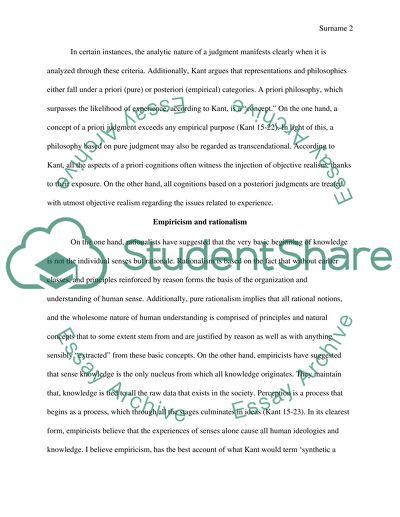Retrieved from https://studentshare.org/philosophy/1594283-rationalism-and-empiricism-and-kants-assessment-of-the-problem-of-knowledge
https://studentshare.org/philosophy/1594283-rationalism-and-empiricism-and-kants-assessment-of-the-problem-of-knowledge.


